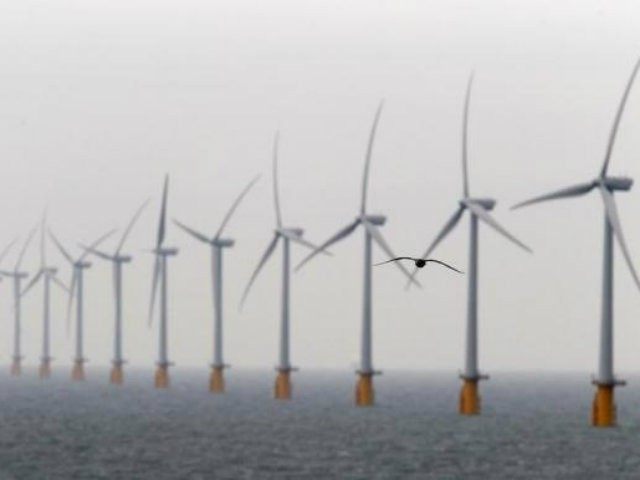Household energy bills are set to rise by 40 percent by the end of the decade thanks to government energy policies, but the hike pales in comparison to the 77 percent increase that medium sized businesses are likely to face, adding an extra half a million pounds a year to their energy bill. The figures, revealed thanks to a Freedom of Information Act request, were initially held back by ministers on the grounds that they were “confusing”.
According to the Department of Energy and Climate Change’s own figures, by 2020 the average household will be paying as much as £250 a year to fund the government’s costly green energy schemes, mainly consisting of subsidies for renewable energies and insulation giveaways. For homes which are only heated electrically, that figure rises to £440 a year, the Telegraph has reported.
For businesses the forecast is even more bleak, with the bill for a typical medium sized business consuming 11,000 MWh rising from £760,000 a year to a whopping £1.3 million – an increase of £540,000 a year. The huge cost is certain to be passed on to consumers in the form of higher prices, and may also affect companies’ ability to take on new staff and expand.
The figures came to light thanks to a Freedom of Information Act request lodged by the Renewable Energy Foundation. It had grown suspicious when DECC released a report in November claiming that green energy policies were already saving the average household £90 a year, but omitted the raw data required to back up its claims. A DECC spokesman has admitted that the tables containing the data were withheld because they were “thought to be confusing”.
Dr John Constable, director of the Renewable Energy Foundation said “The striking scale and increasing trend of the climate policy energy price impacts are bad enough in themselves, but DECC’s attempt to conceal these vitally important figures is breath taking.”
He said that it was his understanding, thanks to an informed source, that pressure had come to bear on DECC to withhold the tables.
“This is a very unsatisfactory situation,” he said, “Energy price impact data is so intrinsically important, and policy transparency so crucial to public trust in government, that very firm intervention is needed to clear the air and ensure that it will not happen again. This sounds like a job for the Prime Minister.”
Nonetheless, the DECC spokesman was defiant. “We always said we would publish the data anyway. It is not written anywhere but that is what we were quite clear about,” she insisted, adding “Without the Government’s policies bills would still be higher.”
Yet that claim is dubious. DECC’s own figures show that energy consumption fell by 9.5 percent between 2008 and 2013 – but that electricity prices are 17 percent higher than they would have been had green energy policies not been enacted. Any benefit incurred by using less energy has therefore been more than cancelled out by rising prices.
Paul Homewood, writing at Watts Up With That also points out that £77 of the predicted £276 saving that we will all be enjoying in 2020 is due to building regulations. “Unfortunately,” he points out, “very few people live in new houses affected by this, and therefore will not save a penny.”
A further £98 saving comes in the shape of “products policy” – but again only applies to people who buy the latest appliances, which depends on people being able to afford the appliances in the first place.
It also disregards the fact that these savings may well have nothing to do with governmental policy at all, but may merely be a function of the free market. In his 2010 paper Economic Freedom: A No-Regrets Strategy for Reducing Global Energy Consumption, Todd Wynn of the Cascade Policy Institute in Oregon says “Many environmentalists claim that governmental policies are the solution to achieving greater energy efficiency and lower greenhouse gas emissions.
“In fact, countries with higher levels of economic freedom are associated with lower greenhouse gas emissions and energy use per dollar of gross domestic product. This is mainly due to the competitive pressures of the free market continuously pushing the entire economy to become more efficient.”

COMMENTS
Please let us know if you're having issues with commenting.